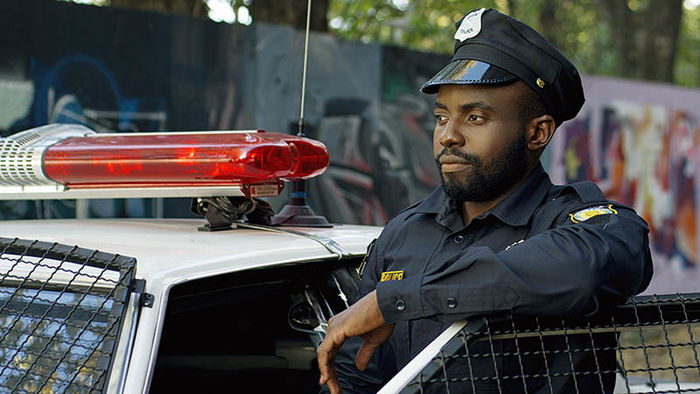Improve the criminal justice system
Have you ever wondered what causes crime? Penn State Shenango’s Criminal Justice students explore current events, and policies to consider ways to better the system.
As a Criminal Justice student, you will develop an understanding of the complex system where law enforcement, the courts, and corrections intersect. Utilizing your knowledge of the justice system, you will apply psychology, victimology, and criminology concepts to discover solutions that better the communities we reside in.
Penn State Shenango offers two degrees in Criminal Justice:
- The Bachelor of Arts in Criminal Justice provides a broadly based liberal arts background for the study of crime, justice, and the criminal justice system.
- The Bachelor of Science in Criminal Justice offers an opportunity for educational enrichment in fields not traditionally considered part of the liberal arts.
You’ll love the Criminal Justice major if…
- You enjoy helping others, or doing something for the greater good of your community
- You are interested in all aspects of the law, including the psychology behind criminal behavior and the way criminal justice and social service agencies operate
- You want to serve society and have good people skills
- You are interested in a career in law enforcement, the courts, corrections, or another part of the criminal justice system
Visit Penn State Shenango
Check out our selection of open houses, application workshops, and personalized visits to discover why Penn State Shenango is the perfect place for you.
Criminal Justice career opportunities
Criminal Justice graduates are prepared for a challenging career through this unique combination of theory and application. While criminal justice-related careers vary, the median income for police officers and detectives is $67,290, nearly $20,000 more than the national average.
Jobs in criminal justice are available at federal, state, local, and private organizations.
Law enforcement
Found at the federal, state, and local levels, uniformed police have a vast range of duties that may include enforcement, patrols, responding to calls of service, directing traffic, applying first aid to victims, and investigating, in addition to administrative tasks.
Corrections
Correctional officers oversee those who have been arrested and are awaiting trial or who have been sentenced to serve time in jail or prison.
Probation and parole officers
These professionals perform similar functions within the justice system by helping lower repeat offenses through monitoring and guidance. They also help with job placement and provide access to mental health services.
Community crime prevention and treatment services
Develop and implement interventions that are designed to reform social conditions that influence and encourage criminal behavior in communities. Juvenile work is common in this profession.
Private sector security
Guards and officers in this field patrol premises and monitor the activity at a private organization, such as a mall or large office building. Their primary responsibility is to protect customers, employees, and guests at the establishment.
Drug rehabilitation counselor
These specialized counselors provide treatment to clients who want to learn how to reduce or remove their unhealthy dependence on destructive substances and behaviors. Counselors work with individuals, families, couples, and groups to share a variety of techniques and treatments for coping with problems in ways other than turning to unhealthy substances.
Continuing your education
Graduates have earned masters and doctoral degrees in the areas of law, criminology, human development, psychology, and social sciences.
What to expect in the Criminal Justice major
Penn State’s Criminal Justice programs focus on enforcement, investigations, legal systems, correctional treatment, and community services.
You will approach criminal justice as an applied science at the intersection of law, public policy, and behavioral science to understand crime as a social problem and improve these systems for the good of society and our communities.
Program note: Penn State Beaver, Penn State New Kensington, and Penn State Shenango jointly deliver the bachelor of science and bachelor of arts degrees in Criminal Justice. All required courses are offered at each campus, although students should expect to take some courses via interactive video and/or the Web.
Credentials for your interests
Beyond Penn State Shenango’s expanding list 4-year and 2-year degree options, the campus also offers dynamic minor and certificate programs to compliment your major and career goals. Explore our academic programming options.
A culture of collaboration
There’s something special at Penn State that converts the “I” to the “we” and ignites our passions to collaborate on meaningful impact. Shenango is rooted in supporting each other in the classroom, in the community, and beyond. In the Criminal Justice major, you can expect to collaborate on unique projects outside of your direct area of study to learn new ways to problem solve and expand your skill set.
Start your Penn State story
We're excited you're ready to become a Penn Stater! Now's the perfect time to get started on your application. If you need help getting started, check out our guides to apply for first-year, transfer, or adult students.
Criminal Justice major courses
Review the full Criminal Justice Bachelor of Arts course listing and the Criminal Justice Bachelor of Science course listing for additional requirements and a sample of the program’s structure.
Introduction to Criminal Justice
Develop an understanding of the United States criminal justice system and the major components of police, courts, and corrections.
Criminology
This course focuses on the major theories and concepts explaining criminal behavior to discover a more complete understanding of crime and how it is enmeshed in human social life.
Policing in America
Explore how police organizations operate in America.
Corrections in America
This course dives into the punishment and treatment of sentenced offenders, correctional institution organization, staffing, inmates, and subcultures.
The Juvenile Justice System
This course examines problems of the juvenile system, how the problems have changed through the ages, how the current juvenile justice system developed, and the programs used to prevent and control delinquency and their effectiveness.
Gain Criminal Justice experience before you graduate
Our Criminal Justice program is designed for you to complete an internship in your senior year that facilitates the application of your classroom learning in a field setting.
This opportunity is designed to provide students with firsthand experience with both challenges and rewards of the business professional in our local communities, a design that sets the major apart from other Criminal Justice programs.
Criminal Justice majors have completed internships in a variety of businesses and organizations related to:
- Pennsylvania State Police
- Pennsylvania Department of Corrections
- Local boroughs
- Probation and parole offices of surrounding counties






